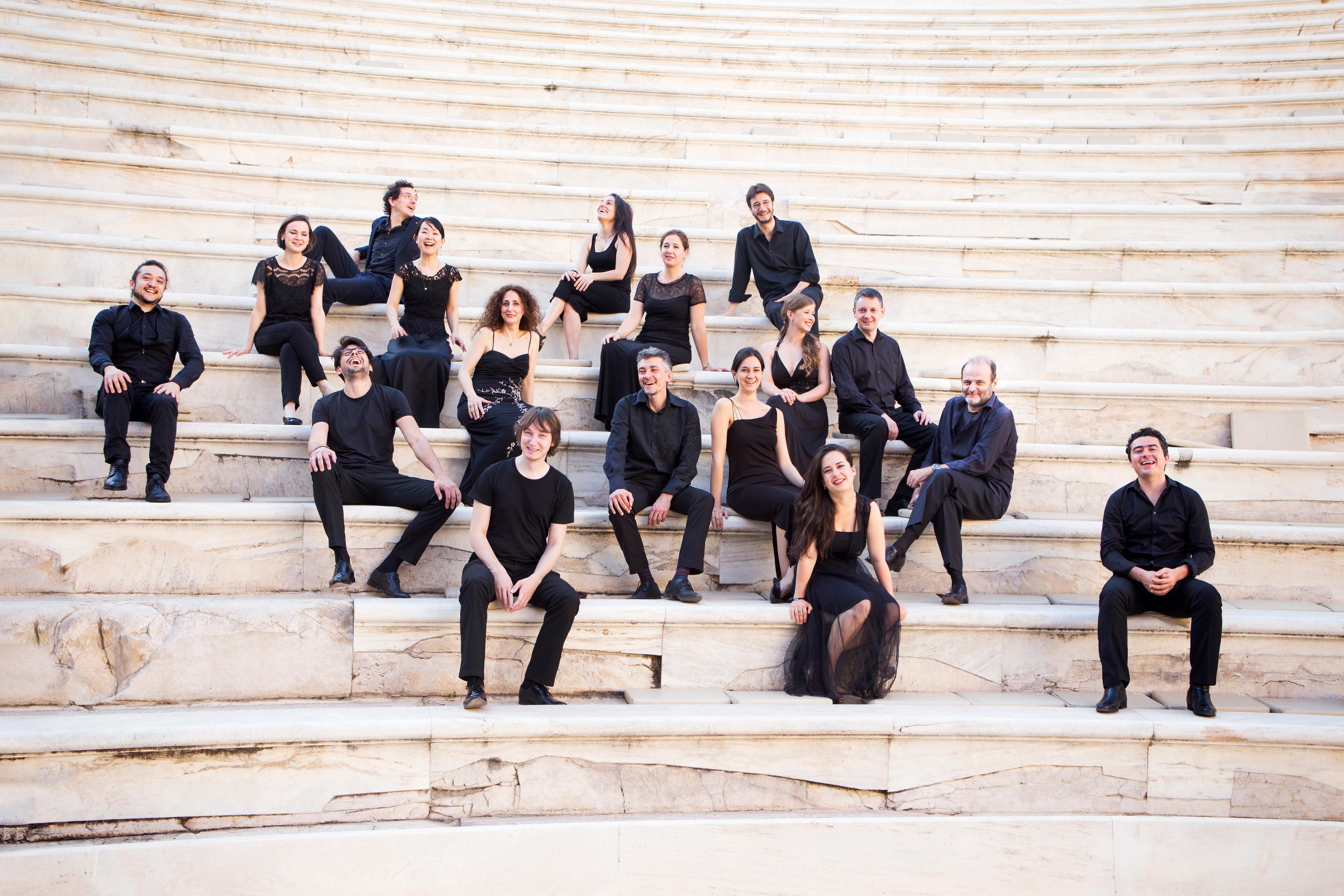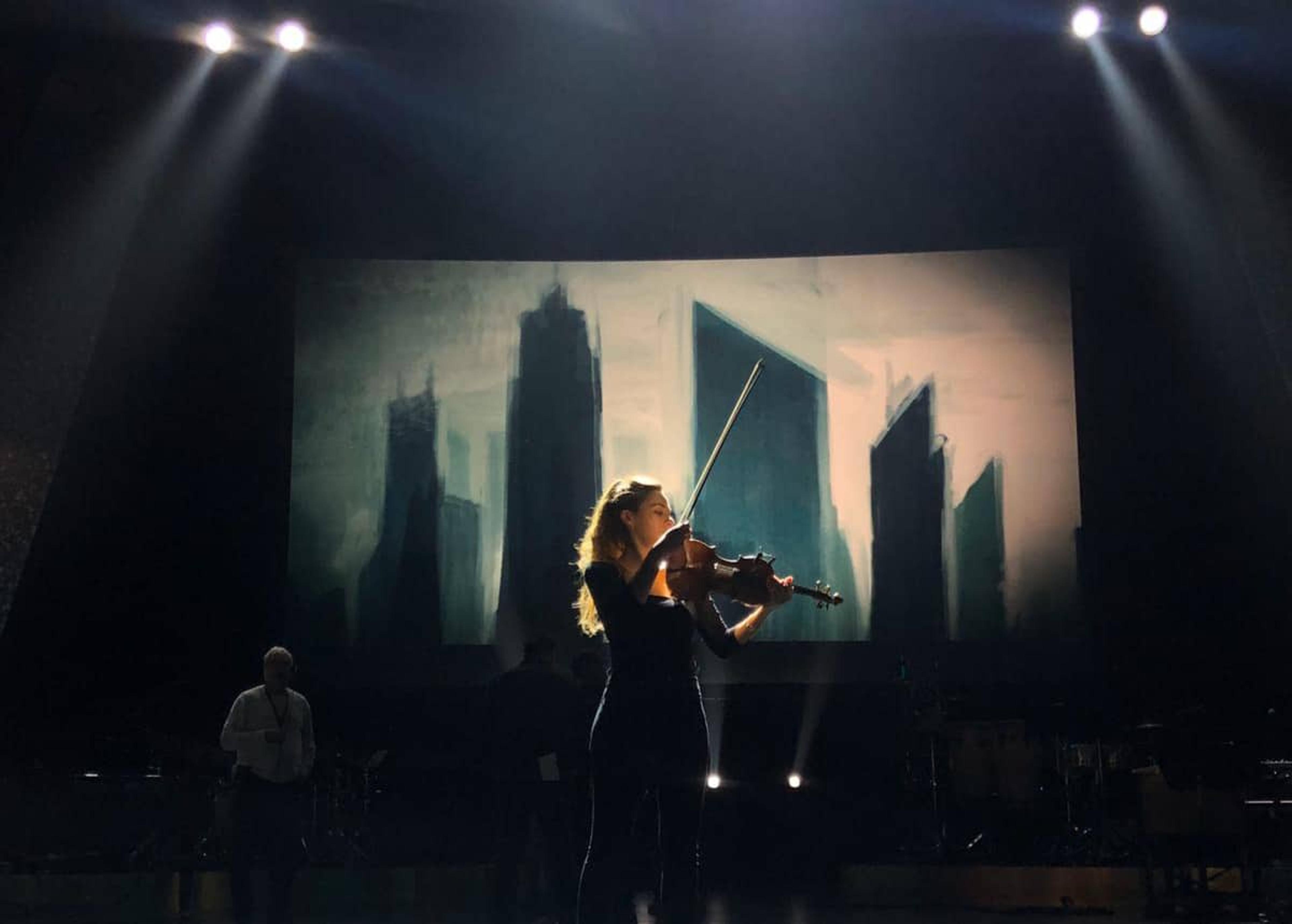JoyceDiDonato


News
- 31 January 2024
ON TOUR: il Pomo d’Oro tours Europe with Joyce DiDonato, Fatma Said and Hugh Cutting
Read full article - 18 January 2023
ON TOUR: EDEN returns to North America
Read full article - 02 March 2022
On tour with Joyce DiDonato : EDEN
Read full article - 10 September 2020
"I Dream a World" - Joyce Didonato appears for Met Stars Live in Concert
Read full article - 27 January 2020
GRAMMY Awards for Nicola Benedetti, Cristian Măcelaru & Joyce DiDonato
Read full article
Press
Dead Man Walking
The Metropolitan OperaSep 2023By now, Sister Helen can hold few secrets for DiDonato. This, after all, was the vehicle for the self-styled Yankee Diva’s New York City Opera debut in the work’s local premiere in 2002 – and she has revisited it since in Houston and Madrid. You might worry at this late date that by now her interpretation had hardened into routine, but that’s not the case at all. DiDonato traces Heggie’s music in tones of limpid purity, phrasing with an ingenuousness that scorns effect even as it strikes to the heart of her character’s hard-won radical empathy. Clear through the still a cappella ending, the radiance burns true.
- Classical Voice North America
- 28 September 2023
Joyce DiDonato has lived with the role of Sister Helen for over two decades now, and one gets the sense that it’s a character she identifies strongly with: an earnest optimist struggling to do good in an increasingly bleak world. DiDonato brings her customary intelligence and thoughtfulness to the role. She commits fully to van Hove’s characterization of Sister Helen – haunted from the first moment she appears onstage, she brings a brittle neuroticism to the character. We see her palpably confront her faith and her feelings of uselessness as she has nothing but apologies to offer the parents of de Rocher’s victims, angry that she has chosen to take his side. van Hove’s Sister Helen is unyieldingly serious, and it’s all the more impressive given DiDonato’s down-to-earth warmth.
- Parterre Box
- 28 September 2023
The MVP of the night was Joyce DiDonato, who, at this point, is an American treasure. Last season she was the star of “The Hours” and that was no different on this night. From her opening “He will gather us around,” sung with the most delicate and thread-like sound, you were with her. There was both serenity and yearning in her singing, the contradiction perfectly establishing the character’s emotional journey throughout. From there, she sang with ebullience when “He will gather us around” turned into a full-blown choral celebration with the children and Sister Rose before singing with similar brightness and charm during the drive to Angola. That’s about as long as that cheery nature would last, with DiDonato’s Helen shifting toward increased desperation during her scenes with De Rocher. The first scene pitted the two characters against one another in stark terms, but in the second, where she tells him that “The Truth Will Set You Free,” her singing takes on a more delicate quality, and at one point when he turns to her and acknowledged that he liked that, you could see him visibly shake with hope as she said “Me too,” her singing full of warmth. One of the standout moments for DiDonato (which is where I double down and say that Van Hove’s decision to bring in the camera at the top of Act was unnecessary) was during the Courtroom scene where Sister Helen is often on the sidelines and gets the brunt of the attack from the parents of the victims. A lot of the time, her back is to the audience, her attention on the other characters. And even then, her body language communicated the conflict. The pain at listening to them and understanding and even siding with them and yet holding on to a conviction that was more than that somehow. It was all there, on stage, in DiDonato’s performance. No need for a closeup to emphasize it. The same for the top of Act two, where her own moral quandary is at its greatest following a dream. In places, DiDonato was at her most agitated, her voice and articulation of the text pointed. But as Sister Rose comforted her, she settled back into that serenity of the opera’s opening for the sublime duet. In subsequent scenes, that calm remained even as she begged Joe to speak the truth, and the ending sequences of the opera, in which DiDonato was just asked to listen, were among her strongest moments. It was through her, not Joe, that we were experiencing the horrors. And at those moments, we could understand what it was she was searching for. Having her gentle voice end the opera was a balm to the chilling experience, and even as I write this, I can still hear it. It is going to haunt me for some time.
- Operawire
- 27 September 2023
There’s no dearth of fine roles. Joyce DiDonato, whom many would call opera's finest singing actor, is a remarkable Sister Helen. Apprehensive, timid and secure at once, wide-eyed when she enters the prison. She stands up to both the prison Chaplain and the Warden without ever letting go of her reserve and dignity. The warmth of the lower part of DiDonato’s voice is used to fine effect, especially when comforting her special prisoner, and the slightly wiry tone at the top adds urgency.
- Bachtrack
- 27 September 2023
The Hours
The Metropolitan OperaNov 2022Viriginia Woolf matches the features of Joyce DiDonato , whose mezzo-soprano voice brings the nuances in this score. The timbre is recognizable by its enveloping warmth, with sound recording from above, mixing its crystalline high harmonics with the support of its serious resonances.
- Olyrix
- 28 November 2022
Greg Pierce did a splendid job with Virginia Woolf--with the inestimable aid of DiDonato's stellar work--working with Puts to capture her art as well as her instability, her neuroses.
- Broadway World
- 25 November 2022
Totally absorbed in the world of Virginia Woolf, DiDonato sang with an exciting, dark sound that had remarkable power.
- Seen and Heard
- 26 November 2022
The gravitas of DiDonato was arresting. Looking like a premonition of death itself, as if she truly was the depressed Woolf, Puts' music lay in the perfect part of her voice.
- Bachtrack
- 25 November 2022
EDEN
Global TourApr 2022It was the tenderest moments that will live longest in the memory: Cavalli’s ‘Piante ombrose’ (from La Calisto) is voice and the sparsest of continuo accompaniments (from Emelyanychev), but how powerful its effect, and how miraculously DiDonato sings this. We forget any matters of technique as we are immersed in the protagonist’s bewilderment. The sense of contrast in the Dance of the Furies from Gluck’s Orfeo ed Euridice was maximal, the full force of Il Pomo d’Oro’s expertise in this repertoire laid bare; the aria ‘Misera, dove son? … Ah! Non son la che parlo’ from the third act of Ezio, a song of discombobulatory grief, or perhaps mourning, for the planet (it speaks of a ‘wretched grief’ that tears the protagonist’s heart asunder, rendering them ‘insane’).
- Seen and Heard
- 07 April 2022
First of all it must be noted that DiDonato's voice, even in a hall with dry acoustics for large orchestral formations like that of the Barbican, expanded very well from the first moment. The concert opened with a piece by Charles Ives entitled “The unanswered question”: on a pianissimo string accompaniment with hypnotic tones, various interventions by DiDonato are inserted with a motif originally conceived for trumpet and here taken up by the voice . Musically, the effect is almost that of a howling-style modulation which symbolically remains unanswered and which is amplified by dissonant interventions from the wind instruments: a disturbing and suggestive effect at the same time. [TRANSLATED] First of all it must be noted that DiDonato's voice, even in a hall with dry acoustics for large orchestral formations like that of the Barbican, expanded very well from the first moment. The concert opened with a piece by Charles Ives entitled “The unanswered question”: on a pianissimo string accompaniment with hypnotic tones, various interventions by DiDonato are inserted with a motif originally conceived for trumpet and here taken up by the voice . Musically, the effect is almost that of a howling-style modulation which symbolically remains unanswered and which is amplified by dissonant interventions from the wind instruments: a disturbing and suggestive effect at the same time.
- Connessi all'Opera
- 07 April 2022
Theodora
Royal Opera House, Covent GardenFeb 2022Joyce DiDonato, elle, emplit la scène et la salle de la sienne sans jamais s’estomper. Ce miel particulier qu’elle distille dans la rondeur aimable de sa voix, la limpidité, la clarté de sa tonalité et de son parler, sa perspicacité, la font toujours trouver l’ampleur et l’endroit pour atteindre son auditoire, une grande dame du chant, vraiment. [TRANSLATED] Joyce DiDonato, for her part, fills the stage and the room of his without ever fading. This particular honey that she distills in the amiable roundness of her voice, the limpidity, the clarity of her tone and of her speaking, her insight, always makes her find the breadth and the place to reach her audience, a great lady singing, really.
- Opera Online
- 06 February 2022
Joyce DiDonato fait ce soir-là chavirer le Royal Opera House. Peut-être parce que la mezzo américaine possède cette aura inimitable en scène, où la justesse du jeu et des expressions viennent seconder l’excellence, l’intelligence et la musicalité du chant. Le grain de son timbre s’incruste dans la pureté de la ligne vocale comme des enluminures en stucs. « Lord, to Thee, each night and day » qui ouvre le troisième acte lui vaudra un des rares triomphes, d’un public qui, le reste de la soirée, n’aura pas souhaité interrompre les flots de ce spectacle hypnotique. L’ovation pendant les saluts n’en sera que plus forte et méritée. [TRANSLATED] That evening, Joyce DiDonato brought the Royal Opera House to its feet. Perhaps it's because the American mezzo possesses that inimitable aura on stage, where the accuracy of her acting and expressions are matched by the excellence, intelligence and musicality of her singing. The grain of her timbre is embedded in the purity of the vocal line like stucco illuminations. "Lord, to Thee, each night and day", which opens the third act, earned her one of the rare triumphs of an audience that did not wish to interrupt the flow of this hypnotic performance for the rest of the evening. The standing ovation during the salutes was all the louder and all the more deserved.
- Forum Opera
- 10 February 2022
Joyce DiDonato nel ruolo di Irene. Brilla per capacità di usare un ampio spettro di colori, per la varietà di sfumature, per il controllo del fiato e delle messe di voci. Tutti i suoi interventi hanno un senso musicale e la voce è ben presente in sala, con una linea di canto ben modellata e dalle dinamiche curate, con pianissimi intimamente sentiti. La resa di “As with rosy steps the morn” e “Defend her, heav’n” è emozionante, mentre le colorature concitate della sezione B di “Lord, to thee” sono ben sgranate. Nella stessa aria poi, il mezzosoprano americano incastra una lunga cadenza senza accompagnamento tra suoni enigmatici e pianissimi intimamente suggestivi. [TRANSLATED] Of all the performers, Joyce DiDonato stands out in the role of Irene. She shines for her ability to use a wide spectrum of colors, for the variety of shades, for the control of breath and masses of voices. All of her interventions have a musical sense and her voice is very present in the room, with a well-modelled singing line with well-kept dynamics, with intimately felt pianissimi. The rendition of “As with rosy steps the morn” and “Defend her, heav'n” is exciting, while the excited coloraturas of the B section of “Lord, to thee” are well grained. Then, in the same aria, the American mezzo-soprano fits a long unaccompanied cadence between enigmatic sounds and intimately suggestive pianissimi.
- Connessi all'Opera
- 10 February 2022
The role of Irene, taken by DiDonato, has greater dramatic scope and matchless arias (including As with rosy steps the morn). DiDonato and Bicket together showed how Handel’s long da capo arias – in which the first section returns after a contrasting middle – move forwards not back, not a repetition but an emotional transfiguration. They did this via ornamentation and dynamics, subtle in execution, absolute in impact. DiDonato, whether pushing her Dinnerladies cleaning trolley or spooning out instant coffee as if for a homely prayer meeting, electrified, especially in Lord, to thee.
- The Guardian
- 10 February 2022




